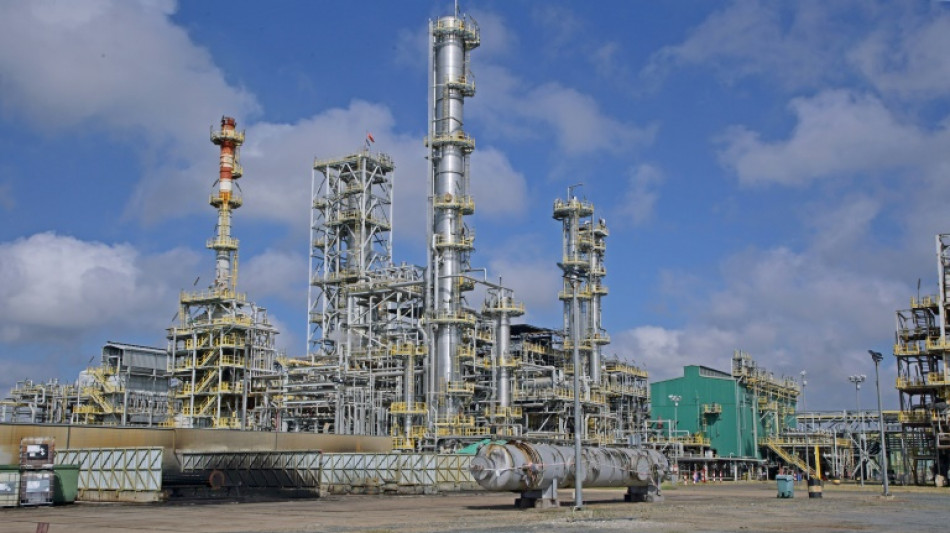
-
 Border casinos caught in Thailand-Cambodia crossfire
Border casinos caught in Thailand-Cambodia crossfire
-
Australia's Head slams unbeaten 142 to crush England's Ashes hopes

-
 Epstein files due as US confronts long-delayed reckoning
Epstein files due as US confronts long-delayed reckoning
-
'Not our enemy': Rush to rearm sparks backlash in east Germany

-
 West Indies 110-0, trail by 465, after Conway's epic 227 for New Zealand
West Indies 110-0, trail by 465, after Conway's epic 227 for New Zealand
-
Arsonists target Bangladesh newspapers after student leader's death
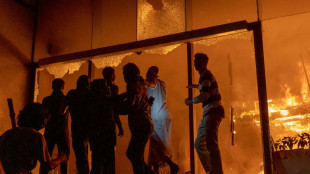
-
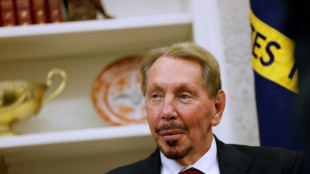 Volatile Oracle shares a proxy for Wall Street's AI jitters
Volatile Oracle shares a proxy for Wall Street's AI jitters
-
Tears at tribute to firefighter killed in Hong Kong blaze

-
 Seahawks edge Rams in overtime thriller to seize NFC lead
Seahawks edge Rams in overtime thriller to seize NFC lead
-
Teenager Flagg leads Mavericks to upset of Pistons

-
 Australia's Head fires quickfire 68 as England's Ashes hopes fade
Australia's Head fires quickfire 68 as England's Ashes hopes fade
-
Conway falls for 227 as New Zealand declare at 575-8 in West Indies Test

-
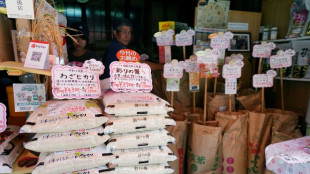 Japan hikes interest rates to 30-year-high
Japan hikes interest rates to 30-year-high
-
Brazil's top court strikes down law blocking Indigenous land claims
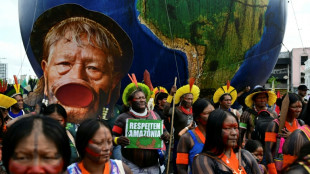
-
 Conway falls for 227 as New Zealand pass 500 in West Indies Test
Conway falls for 227 as New Zealand pass 500 in West Indies Test
-
'We are ghosts': Britain's migrant night workers
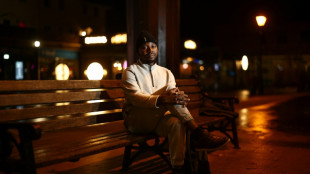
-
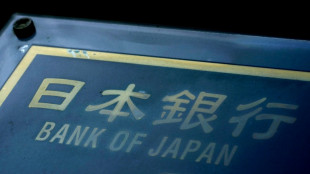 Asian markets rise as US inflation eases, Micron soothes tech fears
Asian markets rise as US inflation eases, Micron soothes tech fears
-
Giant lanterns light up Christmas in Catholic Philippines
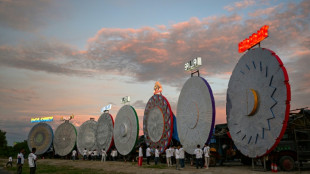
-
 TikTok: key things to know
TikTok: key things to know
-
Putin, emboldened by Ukraine gains, to hold annual presser

-
 Deportation fears spur US migrants to entrust guardianship of their children
Deportation fears spur US migrants to entrust guardianship of their children
-
Upstart gangsters shake Japan's yakuza
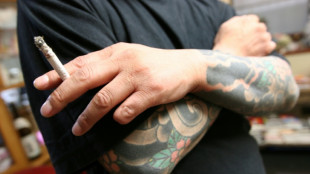
-
 Trump signs $900 bn defense policy bill into law
Trump signs $900 bn defense policy bill into law
-
Stokes's 83 gives England hope as Australia lead by 102 in 3rd Test

-
 Go long: the rise and rise of the NFL field goal
Go long: the rise and rise of the NFL field goal
-
Australia announces gun buyback, day of 'reflection' after Bondi shooting
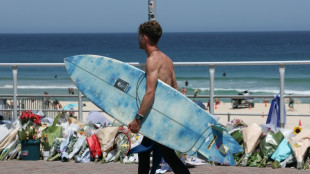
-
 New Zealand Cricket chief quits after split over new T20 league
New Zealand Cricket chief quits after split over new T20 league
-
England all out for 286, trail Australia by 85 in 3rd Test

-
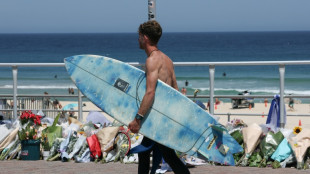 Australian announces gun buyback, day of 'reflection' after Bondi shooting
Australian announces gun buyback, day of 'reflection' after Bondi shooting
-
Joshua takes huge weight advantage into Paul fight

-
 TikTok signs joint venture deal to end US ban threat
TikTok signs joint venture deal to end US ban threat
-
Conway's glorious 200 powers New Zealand to 424-3 against West Indies

-
 WNBA lockout looms closer after player vote authorizes strike
WNBA lockout looms closer after player vote authorizes strike
-
Honduras begins partial vote recount in Trump-dominated election

-
 Nike shares slump as China struggles continue
Nike shares slump as China struggles continue
-
Hundreds swim, float at Bondi Beach to honour shooting victims

-
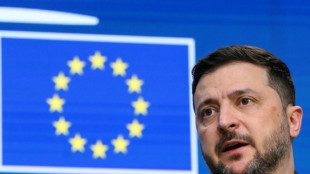 Crunch time for EU leaders on tapping Russian assets for Ukraine
Crunch time for EU leaders on tapping Russian assets for Ukraine
-
Pope replaces New York's pro-Trump Cardinal with pro-migrant Chicagoan

-
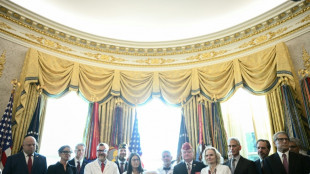 Trump orders marijuana reclassified as less dangerous drug
Trump orders marijuana reclassified as less dangerous drug
-
Rams ace Nacua apologizes over 'antisemitic' gesture furor

-
 McIlroy wins BBC sports personality award for 2025 heroics
McIlroy wins BBC sports personality award for 2025 heroics
-
Napoli beat Milan in Italian Super Cup semi-final

-
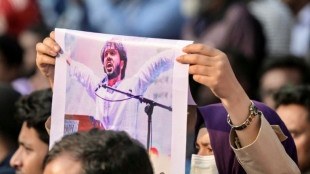 Violence erupts in Bangladesh after wounded youth leader dies
Violence erupts in Bangladesh after wounded youth leader dies
-
EU-Mercosur deal delayed as farmers stage Brussels show of force
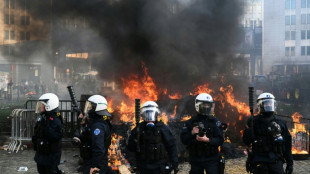
-
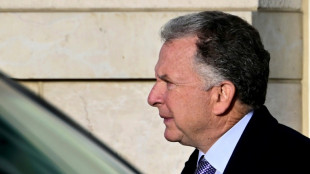 US hosting new Gaza talks to push next phase of deal
US hosting new Gaza talks to push next phase of deal
-
Chicago Bears mulling Indiana home over public funding standoff

-
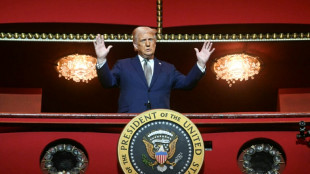 Trump renames Kennedy arts center after himself
Trump renames Kennedy arts center after himself
-
Trump rebrands housing supplement as $1,776 bonuses for US troops
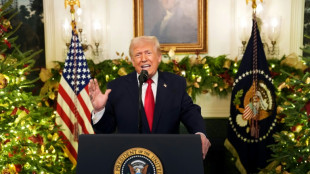
-
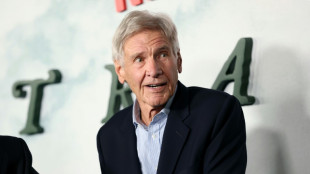 Harrison Ford to get lifetime acting award
Harrison Ford to get lifetime acting award
-
Trump health chief seeks to bar trans youth from gender-affirming care
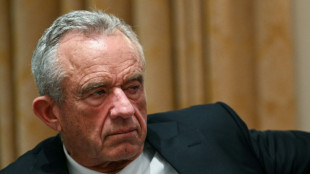

Suriname poised for cash inflow from newly discovered oil
Suriname, South America's smallest country, is preparing for an inflow of cash from a huge offshore oil find, with the president insisting the population will receive a direct share of the wealth.
The Dutch-speaking nation of about 600,000 people expects to rake in about $10 billion in the next decade or two, with crude extraction set to begin in 2028.
Projected output is 220,000 barrels per day (bpd) -- up from about 5,000 to 6,000 -- in a country where one in five people live in poverty.
"From 2028, we'll be an oil-producing country," President Chan Santokhi told AFP ahead of elections Sunday for lawmakers who will choose the next president.
He is one of several candidates in the running to steer the former Dutch colony wedged between Brazil, Guyana and French Guiana.
"It will be a huge amount of income for the country," Santokhi said. "We are now able... to do more for our people so that everyone can be part of the growth of the nation."
Besides investing in agriculture, tourism, health, education and green energy, some of the oil money is being paid directly to Surinamese citizens under a program Santokhi has dubbed "Royalties for Everyone" -- RVI for its Dutch acronym.
"It's their share," he said.
Victorine Moti, a finance ministry official responsible for the fund, told AFP: "The whole population of Suriname is eligible for this program, everybody who was born before the 1st of January 2025 and had the Surinamese nationality."
"In figures, it's 572,000 people."
All eligible citizens can register to receive a one-off payment equivalent to $750 paid into an account with an interest yield of seven percent per year.
"With the certificate, they can go to the bank and they have two options: they can withdraw the money or they can choose to save. Hopefully, they will try to save and not cash out immediately," said Moti.
The first beneficiaries are the elderly and disabled, paid with funds advanced by banks.
Next in line will be people 60 and older, then -- once the revenues start flowing in 2028 -- the biggest group of people aged 18-59.
People who save their money for 10 years will receive a bonus of $150 on top of interest earned.
- 'Enjoy my money' -
Naslem Doelsan, 80, has already received her certificate and told AFP she will cash out "to buy good food and some household stuff."
"Why do I need... money in the bank? I'm already old and I want to enjoy my money," she said.
Fellow retiree Jai Abas, 91, told AFP he would keep the money in the bank for now, and maybe give his granddaughter, who lives in the Netherlands, some "pocket money" when she visits.
"What would I do with money? I am old. I can't go anywhere," said Abas, adding his only vice is cigarettes.
Anuschka Tolud, a 38-year-old in a wheelchair, said she would save her payout in the hopes it can one day augment her $113 monthly welfare payout.
Santokhi had previously spoken about avoiding the so-called "oil curse," also known as "Dutch disease," that had befallen other resource-rich countries, such as Venezuela, Angola and Algeria, that were unable to turn oil wealth into economic success.
Norway became an exception by creating a sovereign wealth fund.
Suriname, the president said, would take a "unique" approach, well aware that its crude resources will last only about 40 years.
"We have income from the profit of the oil, we will have income from our fiscal revenues and we will have income from the royalties," he said.
- Property of the nation -
In 2024, French multinational TotalEnergies committed to investing $10.5 billion in the offshore oil field of GranMorgu in the Atlantic Ocean.
An article in the Surinamese Constitution states that "natural riches and resources are property of the nation and shall be used to promote economic, social and cultural development."
But some worry that the benefits may not find their way to all citizens, especially those who live in rural areas, Indigenous communities and Maroons -- descendants of African slaves.
"I myself am curious as to how funds and bureaucracy will be accessed by Indigenous and Maroon communities," Giovanna Montenegro, director of the Latin American and Caribbean Studies Program at Binghamton University in New York State, told AFP.
W.Lapointe--BTB
